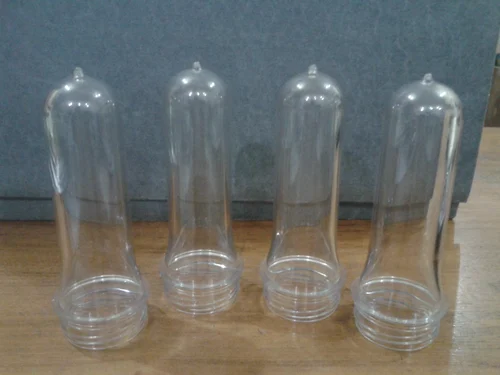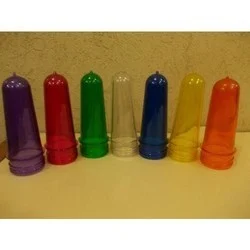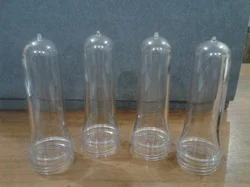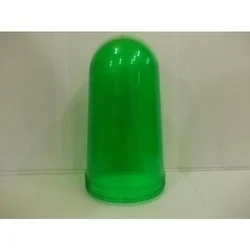AMUL PET Industry
Plastic Bottle Manufacturer in Ahmedabad
AMUL PET Industry is a major producer and supplier of high-quality plastic bottles for sectors such as food & beverage, cosmetics, pharmaceuticals, and others. Our cutting-edge PET manufacturing facility in Ahmedabad utilizes cutting-edge technology and tools to make plastic bottles that are long-lasting, dependable, and satisfy the highest standards in the industry.
FAQ
Until edible water bottles and other plastic bottle material substitutes (such as bioplastics) become as prevalent, cost-effective, and widely available as the original, the plastic bottle will undoubtedly persist, much to the chagrin of environmentalists everywhere. Fortunately, an increasing number of plastic manufacturing businesses are using 100% recycled or partly recycled plastic into their goods. We also provide in-depth guidance on how a plastic bottle maker creates its products, as well as information on other top bottle manufacturers.
When selecting plastic bottles, there are several elements to consider, including apparent criteria such as size, plastic thickness, color, and form, as well as more minute features such as the type of liner for the interior of the bottle caps. However, the sort of plastic to be utilised to produce the bottles is an excellent place to start. Plastic bottles are made from four different plastic compositions:
PET is a strong and light thermoset polymer made from petroleum hydrocarbons via a reaction between ethylene glycol and terephthalic acid, and is commonly used to contain potable water and other beverages.
Polyethylene (PE) is a thermoplastic made of a single monomer, ethylene, and is used for creating blow-molded bottles such as milk and water jugs. It is available in two densities: low-density (LDPE) for use in squeeze bottles and high-density (HDPE) for use in stiff plastic bottles such as detergent bottles.
Polypropylene (PP) is a low-density polymer that is used in thermoforming, extrusion, injection molding, and other moulding processes including blow moulding. PP is used to make stronger containers, such as pill bottles.
Polycarbonate (PC) is a more costly bottle material that is used to make longer-lasting and more robust reusable containers such as refillable water bottles, nursing bottles, and lab bottles. It is created by the polymerization of bisphenol A (C15H16O2) with phosgene. (COCl2).
While plastic bottles may be used to package a variety of things ranging from chemicals to sauces, one of its most common use is to hold beverages. Soft drinks, juice, tea, water, and milk are examples of these.
Beer and other alcoholic beverages are not often packed in plastic bottles for a variety of reasons, the most important of which are flavour and carbonation. Although plastic has no effect on the flavour of juice, alcohol may and does develop a more plastic flavour with time, and carbonation exits it faster than in glass bottles. The exception is beer, which is occasionally served at stadiums or other venues where it would be drank fast, allowing the carbonation to escape and the flavour to be influenced by plastic.
Here are some of the top plastic bottle manufacturers and companies in Ahmedabad:
Amul Pet Industry:
Amul Pet is a leading plastic manufacturing company that is committed to providing the market with high-quality plastic products for various uses and applications. We take pride in our excellent infrastructures and state-of-the-art machinery that enable us to produce a wide range of products in varying quantities to meet the diverse needs of our clients.
At Amul Pet, we understand the importance of quality, and we are committed to producing products that are reliable, durable, and meet the highest industry standards. We use only the finest raw materials and employ the latest manufacturing techniques to ensure that our products perform well in real-world applications.
Our product line includes a wide range of plastic products, including PET bottles, jars, containers, and custom products to meet the specific needs of our clients. We offer a range of sizes, shapes, and colors to suit different applications, and we can customize our products according to our clients’ requirements.
We work closely with our clients to understand their needs and provide personalized support throughout the entire production process. Our fast lead times and competitive pricing also help our clients stay competitive in their respective industries.
At Amul Pet, we are dedicated to providing our clients with the best plastic products on the market. Contact us today.
Prince Polymers:
In Ahmedabad, Prince Polymers is a significant maker of plastic bottles, jars, and containers. They provide a diverse selection of items in various sizes and forms to fulfil the demands of various sectors.
J K Polymer:
In Ahmedabad, J K Polymer is a well-known maker and seller of plastic bottles and jars. They employ cutting-edge technology and tools to make high-quality goods at reasonable pricing.
Siddhi Industries:
Siddhi Industries is a well-known name in the Ahmedabad plastic bottle manufacturing business. They specialise in PET bottle production for the food and beverage, pharmaceutical, and cosmetic sectors.
SR Plastics:
SR Plastics is a well-known PET bottle producer in Ahmedabad. They provide a wide choice of standard and bespoke bottles to satisfy their clients’ specific requirements.
Creative PET Industries:
Based in Ahmedabad, Creative PET Industries is a prominent maker of PET bottles and jars. They specialise in making bottles for the food and beverage, pharmaceutical, and cosmetic sectors.
Rangoli Plastics:
Rangoli Plastics is a well-known name in the Ahmedabad plastic bottle manufacturing sector. They manufacture high-quality PET bottles and jars for a wide range of sectors, including food & beverage, cosmetics, and medicines.
Shree Rama Industries is a dependable producer and supplier of plastic bottles and jars in Ahmedabad. They provide a diverse assortment of items in various sizes and forms to fulfil the demands of their customers.
These are only a handful of Ahmedabad’s top plastic bottle makers and firms. To guarantee that you’re obtaining the greatest product for your needs, consider variables such as quality, customization possibilities, cost, and customer support when selecting a manufacturer.
Bottles made of plastic
Plastic bottles, which are made using a technique known as blow molding, are one of the most regularly used beverage containers in the modern world. Plastic bottle producers may utilise a number of plastic materials in this process to create bottles in a broad range of shapes and sizes. Most plastic bottles, on the other hand, are distinguished by thin wall construction, relatively tiny diameters, light weight, and low cost.
Bottles Made via Extrusion Blow Molding
Extrusion blow moulding is a form of blow moulding used by plastic bottle producers to generate nearly all of their products. Manufacturers begin this process by loading a hopper with stock, which is a collection of tiny, raw thermoplastic pellets or fibres.
They guide the stock away from the hopper and into a conveyance canal containing a big screw. This huge screw simultaneously presses the stock and pushes it into a mould cavity as it revolves. The stock liquefies as a result of the additional impact of heating components in the channel. When the plastic has liquefied, it is pressed into a mould cavity, where it takes on its shape. Manufacturers then force pressured air into the mould cavity, which still contains the partly formed plastic product. The pressurised air’s goal is to hollow out the plastic product and keep it against the mould’s body until it regains its shape.
The freshly formed plastic bottle is then allowed to cool and firm before being taken from the mould. The product can then be transported or sent on for secondary processing after being examined for flaws. Plastic bottle producers may utilise injection blow moulding (IBM) or injection stretch blow moulding to create plastic bottles.
Injection Procedures Molding by blowing
Injection blow moulding (IBM) is a three-stage process that includes injection, blowing, and ejection.
Stage of Injection
In the first stage, molten polymer is supplied into a hot runner manifold and injected into a heated cavity and onto a core pin through nozzles. The polymer that surrounds the core pin conforms to the shape of the cavity, producing an exterior, while the core pin guarantees that it does not solidify and remains hollow.
Stage of Blow Molding
This pin rotates its way to a blow moulding station during the second step, when the mould is clamped around a core rod, inflated within a preform, and chilled.
Stage of Ejection
After the plastic form has solidified, the final product is placed into the ejection position and peeled off the core rod during the third step.
It is crucial to note that of all the plastic blow moulding procedures for plastic bottle manufacture, this is the least widely used. It is instead only used to create tiny capacity bottles and jars. Furthermore, producers adopting this technology are unable to add handles or improve the strength of the bottle barrier.
Injection stretch blow moulding is then utilised to make rectangular, cylindrical, and oval bottles. Injection stretch blow moulding can be done in one of two ways: one-stage or two-stage. The first approach involves blowing both the preform and the bottle in the same machine. In the second way, the preforms are initially formed using the injection moulding process, then warmed and stretched into the desired shape and size. The last phase employs pressurised air and core rods to assist the preforms in stretching appropriately.
Plastic bottle makers employ a variety of polymers to create their goods, including polyethylene, polyethylene terephthalate (PET), and polypropylene. They may employ newly manufactured raw stock or plastic materials derived from reprocessed and recycled items.
Many plastics represent a hazard to the environment if not recycled, thus using recycled materials helps businesses minimise their carbon impact. Along the same lines, many plastic bottle manufacturers can prepare discarded plastic bottles for use as recycled material in a staggering variety of applications, notably in the automotive industry, in addition to making the bottles themselves.
There, recycled plastic bottles may be woven into cloth appropriate for the manufacture of sound absorbers, upholstery, and panels. According to current estimates, it takes around 40 recycled plastic bottles to create a car seat. Reusing plastic bottles is a great idea not just because it is good for the environment, but also because it helps producers comply with recycling rules. The demand for recycled plastic items is huge, and the cost to make them is cheap.
On top of that, plastic bottle makers continue to seek biodegradable plastic alternatives in order to ensure that the ecosystem around them can grow alongside their business.
Plastic bottles are generally produced by a method known as blow moulding. Melting plastic pellets, commonly composed of polyethylene terephthalate (PET), and then forcing air into a mould to form the required shape are the steps involved.
The blow moulding process is divided into various steps:
– Preparation of the material: Plastic pellets are placed into a hopper then heated and melted.
– Melted plastic is extruded into a preform, which is a tube-shaped piece of plastic with a neck and threaded aperture.
– The preform is then placed in a mould and inflated with air, causing it to take on the shape of the mould.
– Cooling and trimming: The bottle is allowed to cool and harden in the mould before being removed, and excess plastic is removed.
– Quality control: Before being packaged and dispatched to clients, the final bottles are examined for flaws and blemishes.
Plastic bottle makers carry out each of these procedures with specialised equipment, allowing them to create vast volumes of bottles rapidly and effectively.
The cost of producing a plastic bottle varies based on a variety of factors, including the bottle’s size and form, the kind of plastic used, and the production process itself.
The majority of the cost of producing a plastic bottle is accounted for by the cost of raw materials (i.e., plastic pellets). Labor, energy, equipment upkeep, and administrative charges are examples of additional costs.
According to industry estimates, the cost of producing a 16-ounce (473 mL) PET bottle can range between ₹4 and ₹13. However, this is only an approximate estimate, and the exact cost may vary based on the conditions.
It’s worth mentioning that the cost of recycling plastic bottles can be far lower than the cost of manufacturing new ones from scratch. This is due to the fact that recycled plastic uses less energy and materials to process than virgin plastic.
Plastic bottles are primarily constructed of polyethylene terephthalate (PET), which is a lightweight, robust, and reasonably priced plastic.
PET is a form of polyester that is widely utilised in a number of applications, including food and beverage packaging, textiles, and even medical implants.
PET is commonly used in plastic bottles because it is robust, resilient, and can be readily moulded into a variety of shapes and sizes. Furthermore, PET is a highly recyclable plastic, making it a popular choice for businesses seeking to lessen their environmental effect.
Depending on the use, other forms of plastic may also be used to make bottles. High-density polyethylene (HDPE), for example, is frequently used to create milk bottles and other containers that require a stronger plastic.
Choosing the best plastic bottle supplier for your product may have a significant influence on the quality and success of your product. Here are some things to think about when choosing a plastic bottle supplier:
Quality: Look for a supplier with a proven track record of creating high-quality plastic bottles that match industry requirements and are consistent in size, shape, and material.
Options for customization: If you need bespoke bottle designs or labeling, ensure sure the provider can satisfy your requirements.
Pricing: Compare prices from several providers to verify that you are paying a reasonable amount for the bottles you want.
Lead time: Take into account the supplier’s lead time for manufacturing and shipping to guarantee that you receive your bottles on time.
Minimum order quantities: Determine whether the supplier has a minimum order quantity requirement and whether it is feasible for your company.
If environmental sustainability is important to your company, search for a supplier who offers eco-friendly solutions or has made a commitment to sustainable practises.
Customer service: Select a supplier who is responsive and simple to deal with, as effective communication and support are critical to a successful collaboration.
You may choose a plastic bottle supplier who fulfils your expectations and can help your product flourish in the market by carefully evaluating these elements.


































